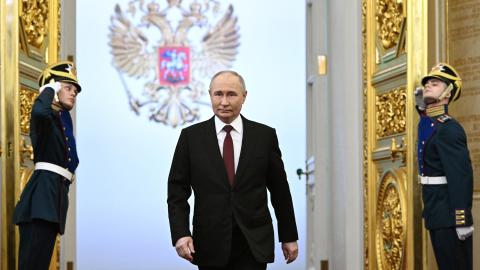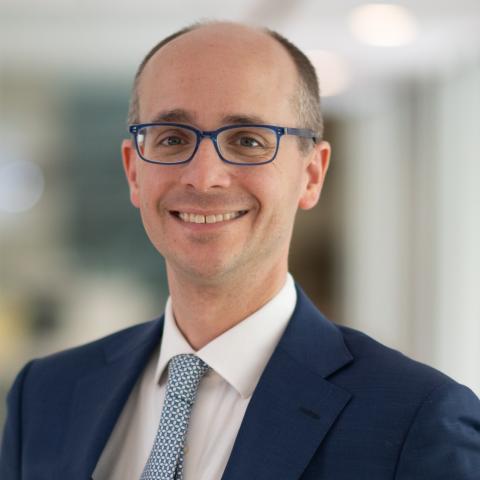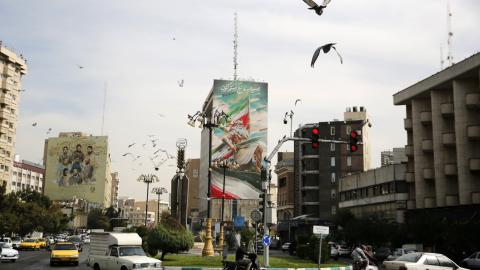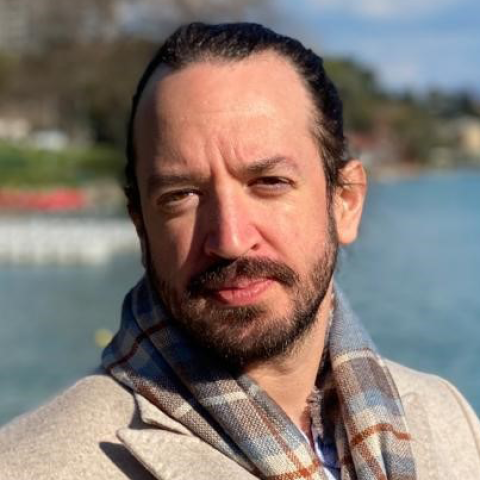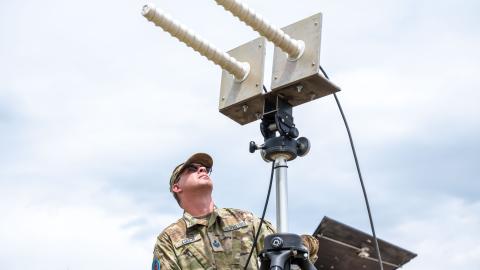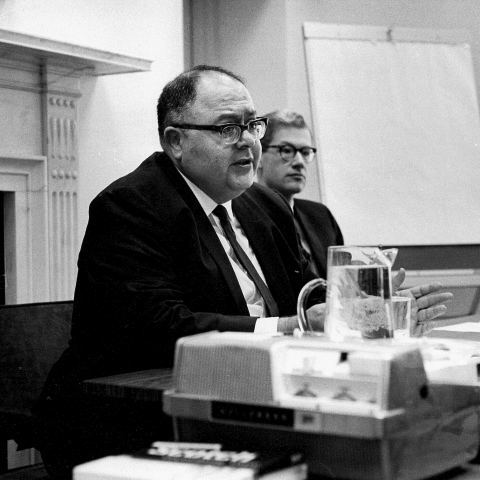With the 5-hour miniseries "Carlos" premiering this week on the Sundance channel and opening in art theatres in selected U.S. cities, there's renewed interest in the Venezuelan-born Ilich Ramírez Sánchez's career of terror. Undoubtedly his best-known operation, and the movie's dramatic core, is the takeover of OPEC headquarters in Vienna in 1975 where he and his cadre from the Popular Front for the Liberation of Palestine took more than 60 hostages, 3 of whom they killed. Carlos's deputy, portrayed in the movie by Rodney al-Haddad, was Anis Nakash, a Lebanese national whose own brilliant career was just about to take off.
In the 1970s, anyone who wanted to learn the finer points of asymmetric warfare—i.e., terror—went to study with the Palestinians. Students came from around the world — Germany, Italy, Japan and, like Carlos himself, Latin America—for manifold reasons: because of the romantic élan of the Palestinian cause, because some of the Palestinian cadres had been trained and armed by the Soviets, and just because the Palestinians had done an awful lot of shooting. Yasser Arafat led the Palestinians' war against Jordan in 1970; known as "Black September," this was a war the Palestinians lost and in which they suffered thousands of casualties before relocating to Lebanon. It was the Palestinians who taught the Iranians that the Lebanese state was the perfect host for a non-state actor determined to wage war against Israel across the border—the Lebanese government was too weak to stop it, while much of the Lebanese, and the Arab masses, cheered it on. The Islamic Revolution put this knowledge to good use when they created Hezbollah.
Nakash was an intermediary between the Palestinians and Iranian revolutionaries who'd overthrown the Shah in 1979. Tehran sent for Nakash to show them how to defend against the counter-revolution they feared. Nakash says that he not only trained the Iranian Revolutionary Guard Corps, but that the whole idea was his. The Iranians, it seems, have never contested the claim. It was the IRGC that in turn seeded Hezbollah, and Nakash was instrumental there, too. He recruited from the Palestinian groups in Lebanon, especially Fatah's elite Force 17 unit where he found men like Imad Mughniyeh. Hajj Radwan, as Mughniyeh came to be known, became a Hezbollah legend, the group's military mastermind who is believed to have planned most of their major operations—kidnappings, car-bombings, hijackings, assassinations, and even grander maneuvers, like Hezbollah's 2006 war with Israel.
Nakash had an eye for talent, but he assisted the Iranian revolution in more hands-on fashion, too. In 1980, he led the plot to assassinate the last prime minister under the Shah, Shapour Bakhtiar, in Paris. Nakash later explained he was just supposed to be supervising the plan, but something went wrong and he was forced to participate in the actual operation. Nonetheless, Bakhtiar escaped with his life, that time anyway (the IRI succeeded in murdering him 1990), but an old woman and a policeman were killed. Nakash was sentenced to life in prison, but France released him ten years later in exchange for French hostages held by Hezbollah. Nakash had done the Islamic republic great service, and the Iranians were understandably eager to have him back in Beirut where they could again put him to good use. He speaks fluent Farsi and travels on an Iranian diplomatic passport. Tehran knows it can count on him.
Shortly after the assassination of former Lebanese prime minister Rafik Hariri, Nakash boasted that he and an Iranian diplomat visited Hariri in early 2005 to warn the Sunni leader to get with the program or else. Nakash is himself a Sunni, but is politically aligned with the Shia—Hezbollah and the Islamic Republic of Iran that the IRGC now rules under Supreme Leader Ali Khameini and President Mahmoud Ahmadinejad, none of whom will tolerate any serious dissent regarding their outpost on the Mediterranean, Lebanon. On February 14, 2005, Hariri was assassinated in a massive car-bombing in downtown Beirut.
After Mughniyeh was assassinated in Damascus in the winter of 2008, Nakash was interviewed all over the Arab media where he was described as Mughniyeh's mentor.
But he is so much more than that. It's not like he has an official job title with Hezbollah or the Islamic Republic—that would make him much too public and, in spite of the movie about his former colleague Carlos, the wealthy Nakash operates only in the shadows. He's the man Iran often calls upon in times of trouble. He's part consultant and part cleaner, a thug with a brain it seems. And yet as with many terrorists from the golden age of terror (from the 1970s to the present), Nakash's apparent lack of a conscience is mistaken for a sort of transcendent intellectualism. This is why filmmakers and journalists get interested in terrorists, but in reality there is nothing singularly Nietzschean, or even interesting, about murder. Still, sometimes even professionals like Nakash get carried away with the conceit of terrorists as creative artists. He is often identified as head of a Lebanese think-tank. He's written a book about the virtues of Islamic banking, "The Banks of Sheikh Salamah," with an introduction by Muslim convert and Holocaust denier Roger Garaudy.
In press reports, Nakash is described as a businessman, and he says he's out of the business of terrorism, but every once in a while he drops hints about his line of work— "Groups resort to a state for weapons, cash or training in secret locations they can't secure alone," Nakash said a few months after 9/11. He ought to know. But he's more than just a link between Hezbollah and Iran, running messages back and forth. Indeed, there are some who think he's every bit as important to the two as was Mughniyeh who, on this line of thinking, was himself more important than Hezbollah's General Secretary Hassan Nasrallah. That is to say, some think Anis Nakash may well be the mastermind behind Hezbollah.


